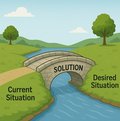Do you make a Good First Impression? Questionnaire
Do you make a Good First Impression? Questionnaire
Related Course
If you find this questionnaire interesting, you may wish to look at this Communication Skills Training Course

Take this test and change your life.
First impressions really do count.
If you are like most people, when you meet a new person, you make a quick judgement and decide quickly, if you like the look of them or not.
This first impression takes place in only about 90 seconds.
After the first 90 seconds, you have completed your initial assessment and then you tend to hold-on to that initial assessment.
You then engage in a process of selective perception, meaning; you look for evidence to support your original first impression, so it tends to be strengthened; and you tend to disregard any evidence that contradicts it.
So, if you have a good first impression of a person, then that good impression tends to be reinforced because you tend to select evidence to support your initial judgement. You want to prove yourself right.
And if you have a bad first impression of a person, then that bad impression also tends to be reinforced because you are on the lookout for evidence that justifies your first opinion.
So, first impressions really do count. And what is true for others, is true for you.
Q1 - When you meet people, do you smile?
Q2 - Which of the following mottos do you agree with most?
Q3 - When you meet others, do you make an effort to remember their name, or do you have trouble remembering names?
Q4 - When you meet people, do you ask about them or do you tell them about you?
Q5 - On meeting new people, do you try to talk in positive terms, or would you allow yourself to complain about the traffic, or the weather, or some other problem you are currently experiencing.
Q6 - If the other person says, “Nice to meet you. How are things?”. Which of the following responses are you most likely to give?
Q7 - How would you describe your handshake?
Q8 - Do you take account of the expected dress code, or rather, do you think they should “take me as I am”?
Q9 - If meeting someone in a business context, are you likely to be well prepared and have everything in good order and to hand, or are you more likely to have forgotten something or be lacking some information or paperwork?
Q10 - If meeting people at an appointed time, are you more likely to arrive ten minutes early or ten minutes late?
Your Details
Your name and email address will be used once to email you your report. If you haven't already chosen, you will be given the option on the next page regarding what other emails (if any) you would like to receive.








